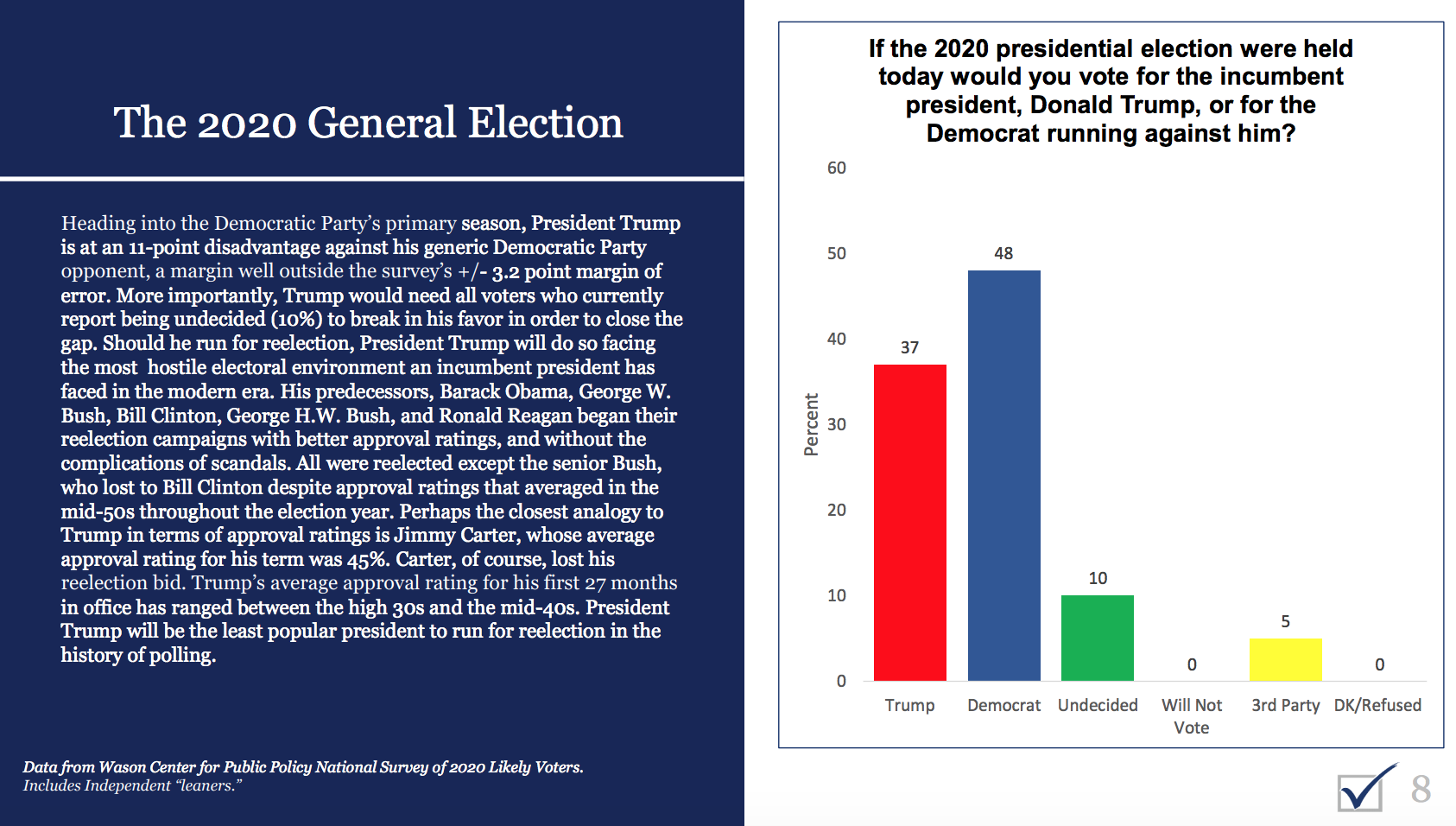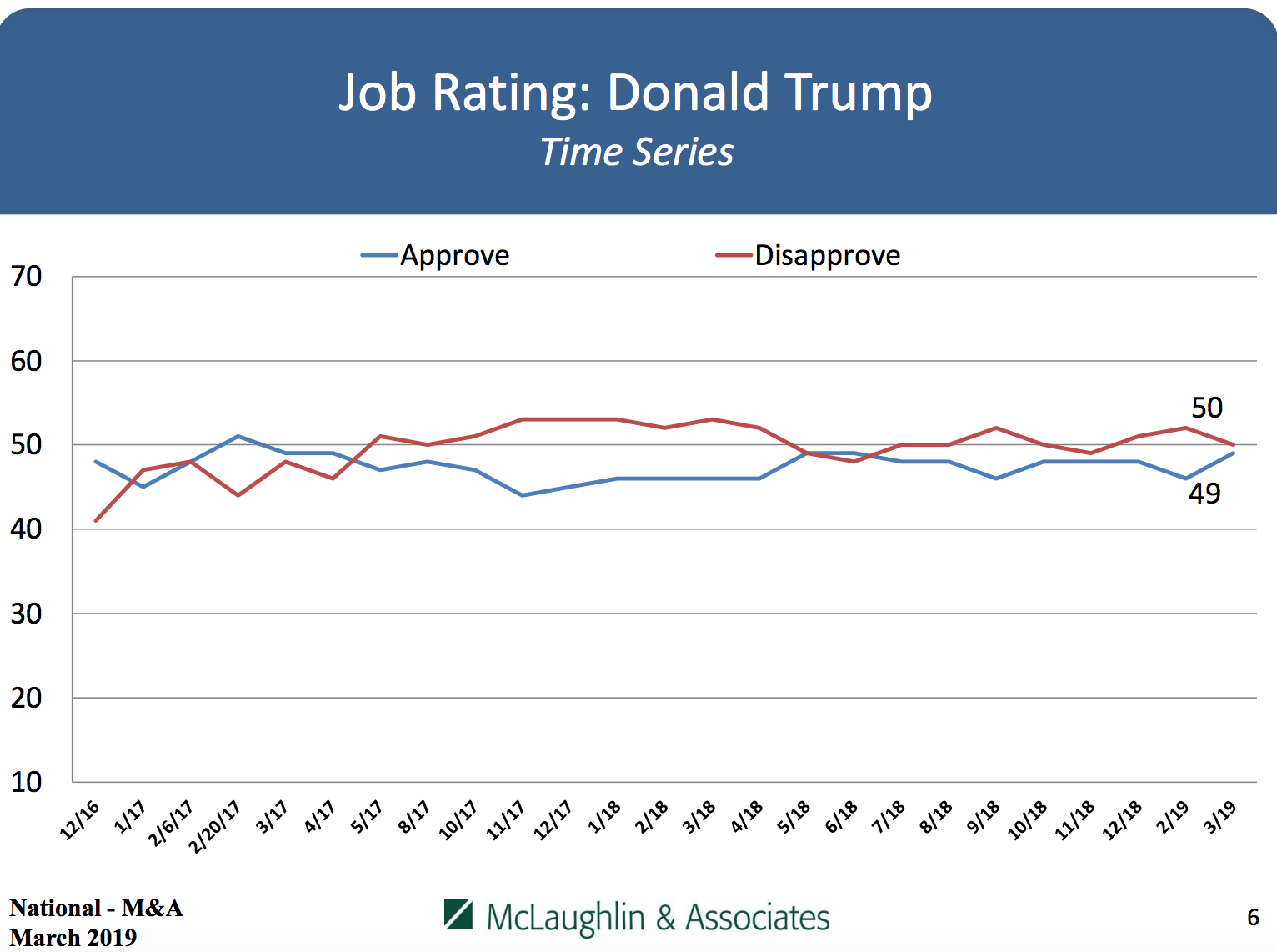It’s never good for a sitting president heading into reelection to be compared to Jimmy Carter.
In 1980, with the country in an economic and diplomatic crisis, the beleaguered former president took on Ronald Reagan, then considered a weak challenger, and won only six states.
Now as 2020 nears, President Trump is finding himself constantly behind Democrats in reelection polls and the latest has compared the Republican to Carter.
“Perhaps the closest analogy to Trump in terms of approval ratings is Jimmy Carter, whose average approval rating for his term was 45 percent,” said a survey from the Wason Center for Public Policy at Virginia’s Christopher Newport University.
“Carter, of course, lost his reelection bid. Trump’s average approval rating for his first 27 months in office has ranged between the high 30s and the mid-40s. President Trump will be the least popular president to run for reelection in the history of polling,” said the poll analysis that put Trump at 37% and a generic Democrat at 48%.

Wason Center Assistant Director Rachel Bitecofer, who directed the survey, said, “It’s actually sheer lunacy to run the guy, but he’s the conductor and the poor GOP is strapped into this train that isn’t making any station stops until after this election.”
Reinforcing her view was the poll findings that Trump is winning just 79% of Republican votes in the hypothetical 2020 matchup while the generic Democrat gets 91% of the party base.
Still, with every poll showing a Democratic blowout in 2020 there are enough “buts” to give Team Trump confidence of a shocking 2016 repeat.
In the Wason Center poll, for example, there is 5% support for a third party candidate and 10% of the electorate undecided.
That, Bitecofer said, gives Trump an opening if former Starbucks chief Howard Schultz makes a run for it as an independent.
“No matter who the nominee is, the GOP strategy will be the same, frame the election around socialism and make Rep. Alexandria Ocasio-Cortez the face of the party,” she said.
Trump’s 2016 pollster John McLaughlin, out with his own new numbers, shows a path for Trump to expand his base to independents and “disaffected Democrats.”
He said that the president is likely to spend this year improving his job approval numbers, which are “grinding upward” and the following year mocking far-left policies Democrats are backing in order to drive up the eventual nominee’s disapproval numbers.

In fact, during a recent chat, he said the president asked about his disapproval percentage on Election Day 2016. McLaughlin said it was 60%. “And what was Hillary’s?” he asked. “Sixty-five percent,” McLaughlin said.
Neither Democratic pollster John Zogby, a grader on the Secrets Weekly White House Report Card, nor John Della Volpe, director of polling at the Harvard Kennedy School Institute of Politics, are counting Trump out.
“From the vantage point of today, if the economy stays strong, unemployment low, fewer Americans are dying in war overseas, and a couple of high-profile agreements with China and North Korea — that all could be molded into a winning campaign as the Democrats are shooting at each other. I am not ready to bet on his reelection, but I am also not ready to bet on his defeat,” Zogby said.’
[Read: Pollster John Zogby: Trump ‘will be hard to beat’ in 2020]
Zogby also cautioned against early polls. “First of all, no party ever nominates a generic. By the time someone emerges from the grueling primary season, he or she is much more and much less than the legend that spinners want you to see. The president’s 40 percent approval is very poor and does not bode well. But so too were his favorable numbers in the summer of 2015 when lots of us said he would be bored with the campaign and could not possibly win,” said Zogby.
Della Volpe said, “If there’s one thing we should have learned from 2016, it is to not count the Trump political operation out of winning an electoral college victory in 2020. There are too many factors in play that could influence the outcome, including whether or not Obamacare gets repealed, the health of the economy, the strength of third party candidate(s), the values and ideology of the Democratic nominee, and the role that Millennials and Gen Z will play.”
Still, he added, “Younger voters turned out at historic levels in 2018, and if they outperform models again, this could add a point or two in favor of Democrats, both nationally and in swing states.”

